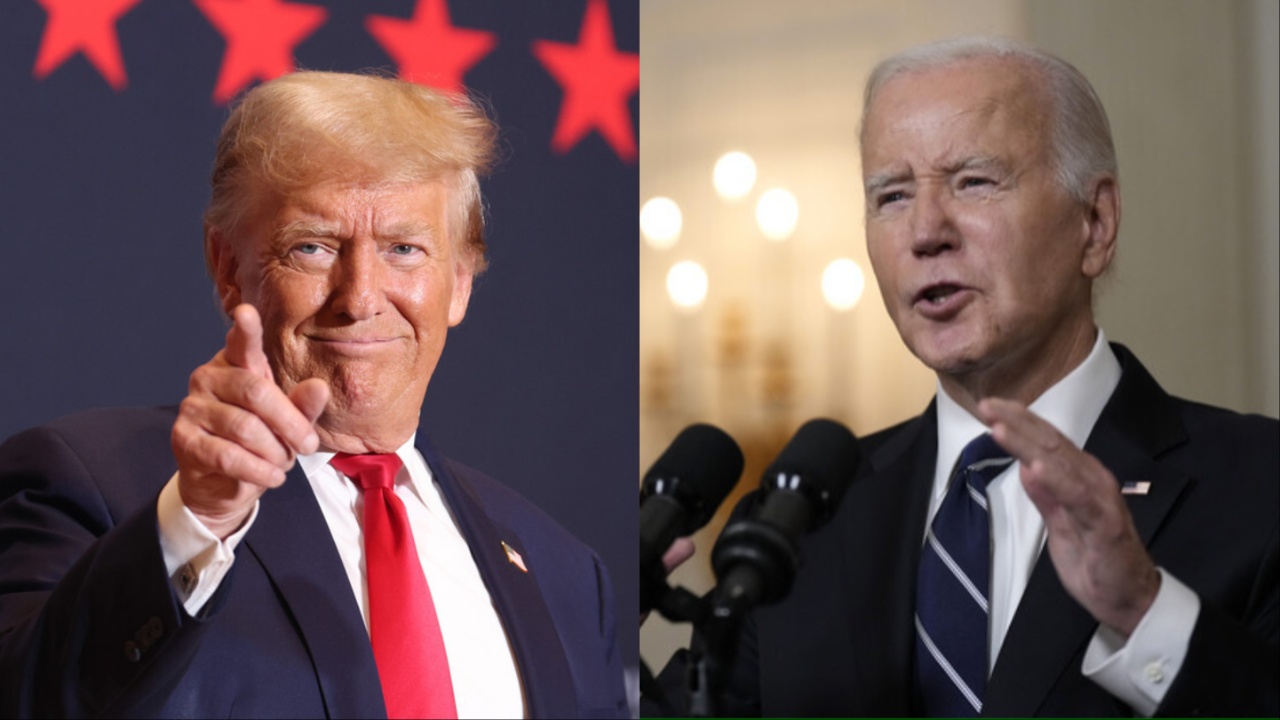The Democratic Congressional Campaign Committee has recently unveiled its ambitious $35 million initiative, named “P.O.W.E.R. (Persuade. Organize. Welcome. Educate. Reach.) The People,” aimed at persuading and mobilizing voters of color to reclaim the U.S. House in the upcoming November elections.
This substantial financial commitment represents the party’s most significant expenditure for this purpose in recent memory, setting the stage for a strategic battle against the Republican Party and, symbolically, former President Donald Trump.
However, beneath this overtly determined effort lies a more nuanced reality: President Joe Biden is struggling to effectively connect with voters of color, jeopardizing the support he once garnered from this crucial demographic.

Trump and Biden (Credits: CNN)
Despite securing an electoral victory with their assistance, recent polls indicate a decline in support. An NBC News poll highlights a rise in Black opposition to Biden from 12% in 2020 to 20% in November, while a New York Times survey reveals that 22% of Black voters in key battleground states now express support for Trump.
This apparent shift prompts a critical question for those perplexed by the trend: What were the expectations? As a voter of color, skepticism prevails regarding the Democratic Party’s genuine commitment beyond leveraging racial divisions to secure votes, and the $35 million initiative does little to alter this perception.
In the current political landscape, where candidates emphasize not being the other party’s candidate, the concept of earning votes holds significance for millions. The Democratic Party’s approach seems to be perceived as an attempt to buy minority votes, overshadowing any genuine efforts to earn support through substantive actions. This tactic raises doubts about the moral standing of a party relying on such strategies.
While Rep. James Clyburn suggests the challenge lies in breaking through the “MAGA wall” to highlight Biden’s accomplishments, radio host Charlamagne tha God emphasizes a trilemma for voters in 2024: choosing between “the cowards, the crooks, and the couch.”
While minority support might be waning for Biden, it does not necessarily translate to a mass exodus to the Trump camp. The challenge is not just overcoming a vocal MAGA wall but also addressing the strong inclination to abstain from voting in November. It stems from the perception of an incumbent lacking the care and commitment expected from a worthy candidate or a presidential leader.
The Democrats seem to struggle to grasp this reality, resorting to spending without a coherent strategy, resulting in subpar outcomes. The cycle of spending, poor execution, fundraising to address shortcomings, and repeating the process reflects a lack of meaningful strategy.
Voters, irrespective of color, yearn for a different approach, seeking a president capable of translating lofty words into action. The desire is for a leader who condemns white supremacy without resorting to racially charged insults against Americans of color who choose not to vote for them. Voters, in this context, reject the notion of being a prize won through meeting the right donation threshold.
The failure to address these concerns, as outlined in the Charlamagne trilemma, results in the Democratic Party losing voters to the couch – a metaphor for voter apathy. Presently, Democratic leaders provide no compelling reason to rescue them from this fate.























